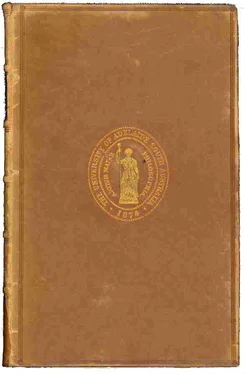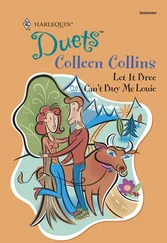Galsworthy, 1867-1933 - To Let
Здесь есть возможность читать онлайн «Galsworthy, 1867-1933 - To Let» весь текст электронной книги совершенно бесплатно (целиком полную версию без сокращений). В некоторых случаях можно слушать аудио, скачать через торрент в формате fb2 и присутствует краткое содержание. Жанр: Старинная литература, на английском языке. Описание произведения, (предисловие) а так же отзывы посетителей доступны на портале библиотеки ЛибКат.
- Название:To Let
- Автор:
- Жанр:
- Год:неизвестен
- ISBN:нет данных
- Рейтинг книги:5 / 5. Голосов: 1
-
Избранное:Добавить в избранное
- Отзывы:
-
Ваша оценка:
- 100
- 1
- 2
- 3
- 4
- 5
To Let: краткое содержание, описание и аннотация
Предлагаем к чтению аннотацию, описание, краткое содержание или предисловие (зависит от того, что написал сам автор книги «To Let»). Если вы не нашли необходимую информацию о книге — напишите в комментариях, мы постараемся отыскать её.
To Let — читать онлайн бесплатно полную книгу (весь текст) целиком
Ниже представлен текст книги, разбитый по страницам. Система сохранения места последней прочитанной страницы, позволяет с удобством читать онлайн бесплатно книгу «To Let», без необходимости каждый раз заново искать на чём Вы остановились. Поставьте закладку, и сможете в любой момент перейти на страницу, на которой закончили чтение.
Интервал:
Закладка:
In this mood he reached the Mecca of his hopes. It was one of those quiet meetings favorable to such as wish to look into horses, rather than into the mouths of bookmakers; and Val clung to the paddock. His twenty years of Colonial life, divesting him of the dandyism in which he had been bred, had left him the essential neatness of the horseman, and given him a queer and rather blighting eye over what he called “the silly haw-haw” of some Englishmen, the ‘flapping cockatoory’ of some Englishwomen — Holly had none of that and Holly was his model. Observant, quick, resourceful, Val went straight to the heart of a transaction, a horse, a drink; and he was on his way to the heart of a Mayfly filly, when a slow voice said at his elbow:
“Mr. Val Dartie? How’s Mrs. Val Dartie? She’s well, I hope.” And he saw beside him the Belgian he had met at his sister Imogen’s.
“Prosper Profond — I met you at lunch,” added the voice. “How are you?” murmured Val.
“I’m very well,” replied Monsieur Profond, smiling with a certain inimitable slowness. “A good devil” Holly had called him. Well! He looked a little like a devil, with his dark, clipped, pointed beard; a sleepy one though, and good-humoured, with fine eyes, unexpectedly intelligent.
“Here’s a gentleman wants to know you — cousin of yours — Mr. George Forsyde.”
Val saw a large form, and a face clean-shaven, bull-like, a little lowering, with sardonic humour bubbling behind a full grey eye; he remembered it dimly from old days when he used to dine with his father at the Iseeum Club.
“I was a racing pal of your father’s,” George was saying. “How’s the stud? Like to buy one of my screws?”
Val grinned, to hide the sudden feeling that the bottom had fallen out of breeding. They believed in nothing over here, not even in horses. George Forsyte, Prosper Profond! The devil himself was not more disillusioned than those two.
“Didn’t know you were a racing man,” he said to Monsieur Profond.
“I’m not. I don’ care for it. I’m a yachtin’ man. I don’ care for yachtin’ either, but I like to see my friends. I’ve got some lunch, Mr. Val Dartie, just a small lunch, if you’d like to ‘ave some; not much — just a small one — in my car.”
“Thanks,” said Val; “very good of you. I’ll come along in about quarter of an hour.”
“Over there. Mr. Forsyde’s comin’,” and Monsieur Profond “poinded” with a yellow-gloved finger; “small car, with a small lunch”; he moved on, groomed, sleepy, and remote, George Forsyte following, neat, huge, and with his jesting air.
Val remained gazing at the Mayfly filly. George Forsyte, of course, was an old chap, but this Profond might be about his own age; Val felt extremely young, as if the Mayfly filly were a toy at which those two had laughed. The animal had lost reality.
“That ‘small’ mare”— he seemed to hear the voice of Monsieur Profond —“what do you see in her — we must all die!”
And George Forsyte, crony of his father, racing still! The Mayfly strain — was it any better than any other? He might just as well have a flutter with his money instead.
“No, by gum!” he muttered suddenly, “if it’s no good breeding horses, it’s no good doing anything. What did I come for? I’ll buy her.”
He stood back and watched the ebb of the paddock visitors towards the stand. Natty old chips, shrewd portly fellows, Jews, trainers looking as if they had never been guilty of seeing a horse in their lives; tall, flapping, languid women, or brisk, loud-voiced women; young men with an air as if trying to take it seriously — two or three of them with only one arm!
‘Life over here’s a game!’ thought Val. ‘Muffin bell rings, horses run, money changes hands; ring again, run again, money changes back.’
But, alarmed at his own philosophy, he went to the paddock gate to watch the Mayfly filly canter down. She moved well; and he made his way over to the “small” car. The “small” lunch was the sort a man dreams of but seldom gets; and when it was concluded Monsieur Profond walked back with him to the paddock.
“Your wife’s a nice woman,” was his surprising remark.
“Nicest woman I know,” returned Val dryly.
“Yes,” said Monsieur Profond; “she has a nice face. I admire nice women.”
Val looked at him suspiciously, but something kindly and direct in the heavy diabolism of his companion disarmed him for the moment.
“Any time you like to come on my yacht, I’ll give her a small cruise.”
“Thanks,” said Val, in arms again, “she hates the sea.”
“So do I,” said Monsieur Profond.
“Then why do you yacht?”
The Belgian’s eyes smiled. “Oh! I don’ know. I’ve done everything; it’s the last thing I’m doin’.”
“It must be d — d expensive. I should want more reason than that.”
Monsieur Prosper Profond raised his eyebrows, and puffed out a heavy lower lip.
“I’m an easy-goin’ man,” he said.
“Were you in the war?” asked Val.
“Ye-es. I’ve done that too. I was gassed; it was a small bit unpleasant.” He smiled with a deep and sleepy air of prosperity, as if he had caught it from his name. Whether his saying “small” when he ought to have said “little” was genuine mistake or affectation, Val could not decide; the fellow was evidently capable of anything. Among the ring of buyers round the Mayfly filly who had won her race, Monsieur Profond said: “You goin’ to bid?”
Val nodded. With this sleepy Satan at his elbow, he felt in need of faith. Though placed above the ultimate blows of Providence by the forethought of a grandfather who had tied him up a thousand a year to which was added the thousand a year tied up for Holly by HER grand-father, Val was not flush of capital that he could touch, having spent most of what he had realised from his South African farm on his establishment in Sussex. And very soon he was thinking: ‘Dash it! she’s going beyond me!’ His limit — six hundred — exceeded, he dropped out of the bidding. The Mayfly filly passed under the hammer at seven hundred and fifty guineas. He was turning away vexed when the slow voice of Monsieur Profond said in his ear:
“Well, I’ve bought that small filly, but I don’t want her; you take her and give her to your wife.”
Val looked at the fellow with renewed suspicion, but the good humour in his eyes was such that he really could not take offence.
“I made a small lot of money in the war,” began Monsieur Profond in answer to that look. “I ‘ad armament shares. I like to give it away. I’m always makin’ money. I want very small lot myself. I like my friends to ‘ave it.”
“I’ll buy her of you at the price you gave,” said Val with sudden resolution.
“No,” said Monsieur Profond. “You take her. I don’ want her.”
“Hang it! One doesn’t —”
“Why not?” smiled Monsieur Profond. “I’m a friend of your family.”
“Seven hundred and fifty guineas is not a box of cigars,” said Val impatiently.
“All right; you keep her for me till I want her, and do what you like with her.”
“So long as she’s yours,” said Val, “I don’t mind that.” “That’s all right,” murmured Monsieur Profond, and moved away.
Val watched; he might be “a good devil,” but then again he might not. He saw him rejoin George Forsyte, and thereafter saw him no more.
He spent those nights after racing at his mother’s house in Green Street.
Winifred Dartie at sixty-two was marvellously preserved, considering the three-and-thirty years during which she had put up with Montague Dartie, till almost happily released by a French staircase. It was to her a vehement satisfaction to have her favourite son back from South Africa after all this time, to feel him so little changed, and to have taken a fancy to his wife. Winifred, who in the late seventies, before her marriage, had been in the vanguard of freedom, pleasure, and fashion, confessed her youth outclassed by the donzellas of the day. They seemed, for instance, to regard marriage as an incident, and Winifred sometimes regretted that she had not done the same; a second, third, fourth incident might have secured her a partner of less dazzling inebriety; though, after all, he had left her Val, Imogen, Maud, Benedict (almost a colonel and unharmed by the war)— none of whom had been divorced as yet. The steadiness of her children often amazed one who remembered their father; but, as she was fond of believing, they were really all Forsytes, favouring herself, with the exception perhaps of Imogen. Her brother’s “little girl” Fleur frankly puzzled Winifred. The child was as restless as any of these modern young women —“She’s a small flame in a draught,” Prosper Profond had said one day after dinner — but she did not flop, or talk at the top of her voice. The steady Forsyteism in Winifred’s own character instinctively resented the feeling in the air, the modern girl’s habits and her motto: “All’s much of a muchness! Spend! To-morrow we shall be poor!” She found it a saving grace in Fleur that having set her heart on a thing, she had no change of heart until she got it — though what happened after, Fleur was, of course, too young to have made evident. The child was a “very pretty little thing,” too. and quite a credit to take about, with her mother’s French taste and gift for wearing clothes; everybody turned to look at Fleur — great consideration to Winifred, a lover of the style and distinction which had so cruelly deceived her in the case of Montague Dartie.
Читать дальшеИнтервал:
Закладка:
Похожие книги на «To Let»
Представляем Вашему вниманию похожие книги на «To Let» списком для выбора. Мы отобрали схожую по названию и смыслу литературу в надежде предоставить читателям больше вариантов отыскать новые, интересные, ещё непрочитанные произведения.
Обсуждение, отзывы о книге «To Let» и просто собственные мнения читателей. Оставьте ваши комментарии, напишите, что Вы думаете о произведении, его смысле или главных героях. Укажите что конкретно понравилось, а что нет, и почему Вы так считаете.












